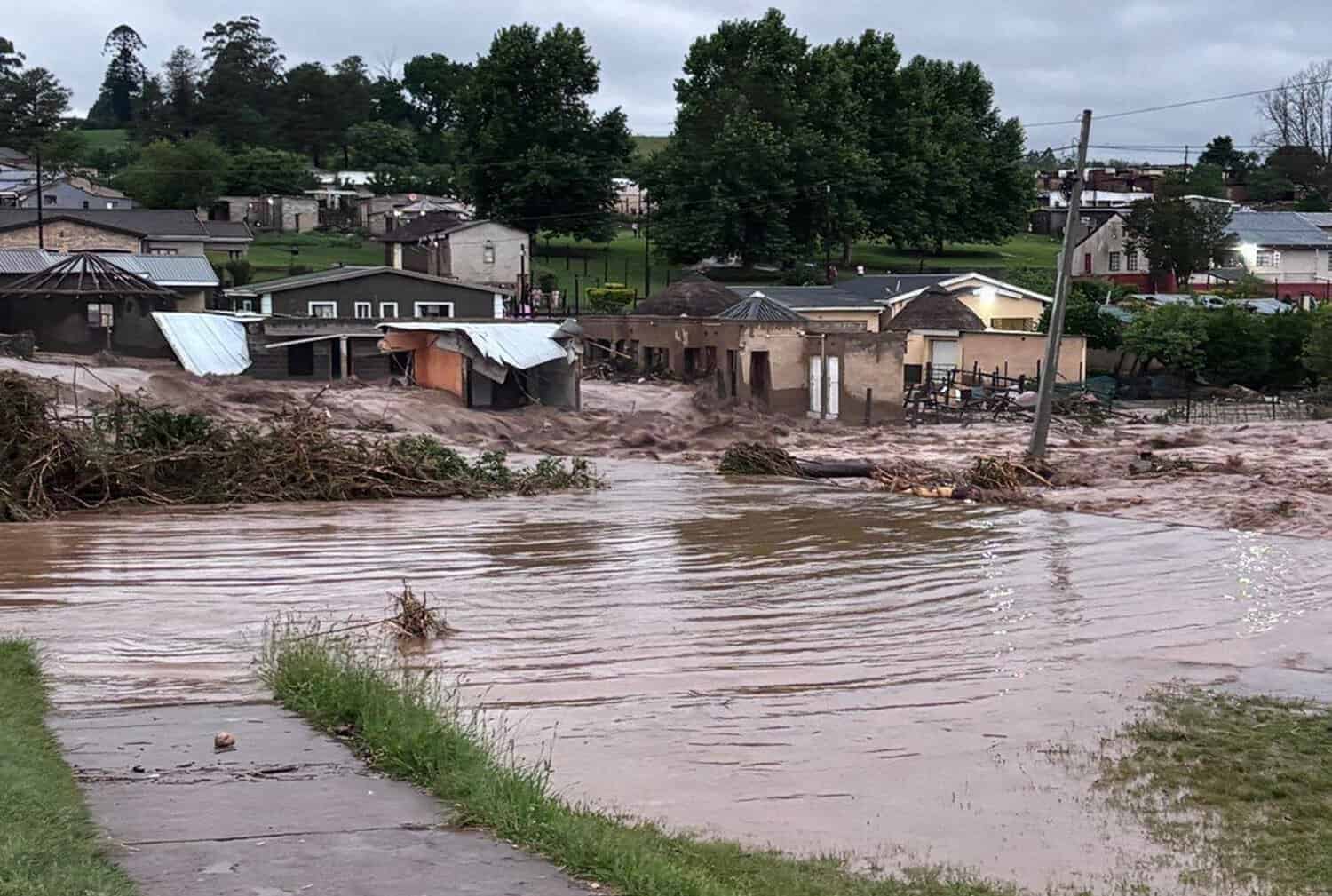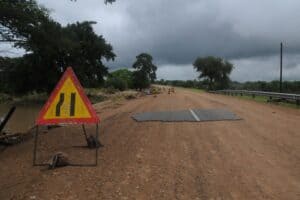The department said it conducts educational campaigns in informal settlements, particularly targeting communities in low-lying areas.

Officials from the Department of Human Settlements (DHS) told parliament’s portfolio committee on human settlements on Wednesday that community resistance to relocation remains one of the most significant obstacles in disaster management, even when alternative housing is available.
Community resistance to relocation
Residents who are refusing relocation cite proximity to work, places of worship, and schools, along with concerns about increased transport costs, as the primary reasons for staying in dangerous areas.
The Jukskei River in the Gauteng area offers easy access to employment opportunities in nearby suburbs, making it economically attractive despite the flood risk.
DHS Director-General Dr Alec Moemi described the challenges along the Jukskei River, where Phase 11 of the Lufhereng project was specifically initiated to relocate residents from flood-prone areas.
“70% of them did agree that they would move and that they would accept houses in Lufhereng, but we also know that there are those who are adamant that they would not move,” Moemi said.
“They argue that they can’t leave their belongings with no one to take care of them and with no way of being sure that upon their return they will find their belongings, which in many instances is the last of what they have,” Moemi explained. “Unfortunately, that scenario is untenable because either way, when the floods do come, they lose those belongings anyway.”
DHS chief financial officer in the North West, Sylvia Mokhadi, recounted similar experiences in the Eastern Cape, where residents whose homes were flooded but not destroyed were temporarily moved to safer accommodation.
“Most of them, after a week or two weeks, they went back, and they did tell us that they appreciated the quick response, but they had to go back to their homes because they wanted to look after their furniture,” she explained.
ALSO READ: Crisis averted at the Vaal Dam
Relocation challenges extend beyond economic factors
DHS said it conducts educational campaigns in informal settlements, particularly targeting communities in low-lying areas.
When the National Disaster Management Centre receives warnings above Level 5 from the South African Weather Service, communities are informed, sometimes via loud hailing, and requested to move to mass care centres.
However, many residents refuse to evacuate even when warnings are issued.
MK party MP, Saira Abader, challenged the government’s approach to the crisis.
“Families living along our river banks from the Jukskei in Pretoria to informal settlements across this country are not living there out of choice. They are living there because government structures have failed them,” she said.
“Budget shortages did not stop us from responding after the disaster, but somehow they always stop us from preventing it,” Abader continued.
“We have money for relief tents, emergency food parcels, body bags and post-disaster clean-ups, but not for the preventative planning that would save lives, protect children and stop this annual cycle of trauma.”
She said the relocation challenges extend beyond economic factors.
Many communities have established social networks, informal businesses and support systems in their current locations.
Moving to formal housing developments often means leaving behind these networks and starting afresh in unfamiliar areas.
ALSO READ: KZN floods relief hampered: Foreign nationals not coming forward
Poorly built homes heighten disaster risk
Beyond location, the quality of housing itself contributes to disaster vulnerability.
Mpumalanga Acting Head of the Provincial Disaster Management Centre, Bongani Ntiwane, identified poorly constructed houses as a major factor in disaster damage, affecting both government-built and self-built homes.
“One of the issues that we have identified, which normally causes problems, whether it is the slightest windstorm or rainfall, is the poorly constructed houses, not just houses that the government build, but houses that people build themselves,” Ntiwane said. “The material that is being used does not align with the minimum standard.”
In response, Mpumalanga has requested municipalities to intensify enforcement of building standards and bylaws.
However, enforcement remains a challenge across provinces, with many local municipalities lacking the capacity to monitor informal construction.
Contractor performance and temporary residential units
Significant concerns emerged regarding contractor performance and the completion of Temporary Residential Units (TRUs). Several provinces reported contractors abandoning sites or failing to complete work.
In North West, 140 TRUs were required in Ditsobotla municipality, but only thirty were submitted, with the contractor no longer on site.
In Mpumalanga, of the 289 required TRUs, only 460 were completed, leaving abandoned slabs where TRUs were supposed to be constructed.
Mokhadi outlined steps being taken to address these failures. “We started issuing letters to all contractors that were not performing, indicating to them that we are seeking to not only terminate the current contracts and reassign them to new contractors to complete the work, but also that we were seeking to restrict them from the database of contractors on our panel,” she explained.
Some contractors responded by accelerating their work after receiving termination notices, whilst others entered legal disputes. The situation is complicated by contractors who subcontracted local builders.
“The subcontractors are owed money, and they need their money to be paid,” Moemi noted.
The department has also uncovered internal corruption. Moemi revealed that the involved staff members have been charged, “and their disciplinary hearings are at an advanced stage.”
Legal and political obstacles to forced relocation
Moemi acknowledged that forceful removals are not legally viable without court orders, and obtaining such orders is politically sensitive.
The department is exploring a pilot project with the Eastern Cape that could provide permanent housing solutions immediately after disasters, potentially addressing some relocation concerns by offering better-quality alternatives.
NOW READ: Rain rolls in, heat returns: Here is Gauteng’s weekend forecast






